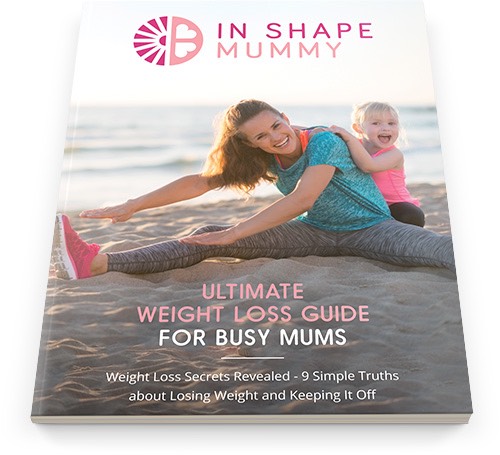Alcohol. What Impact does it have on weight loss?
A nice glass of wine or an ice cold beer can seem like an appealing choice after a long, busy day caring for kids. You may have also heard that alcohol, particularly wine, does have some health benefits, especially in terms of heart health. These so called “benefits” can make it easy to justify drinking. But, regularly drinking alcohol is not a great choice for mums trying to lose weight. Consuming alcohol not only provides additional calories (that add up quite quickly), alcohol can also stimulate your appetite and cravings for less than healthy food.
Alcohol, when consumed in moderation, may provide some health benefits. It has been shown to raise HDL or “good” cholesterol, which helps counteract some of the negative effects of LDL or “bad” cholesterol. It can also reduce your risk of stroke and heart attack. Red wine contains an antioxidant called resveratrol which has been shown in animal studies to improve blood sugar and reduce inflammation. But, one thing to note about this research is that the dosages used were significantly higher than what anyone will consume in just one glass of wine. Also, it is not necessary to drink wine to get the benefits of resveratrol, as purple grapes have the same potential benefits!
Even if you drink in moderation, which is defined as only one drink per day for women, you may still want to consider the caloric contribution of alcohol. Alcohol contains a significant amount of calories, almost as many per gram as fat does. An average glass of wine is about 100-150 calories, a bottle of beer between 100-150 calories, and a shot of hard alcohol between 70-100 calories. These add up very quickly as many of us don’t stop at just one drink. If you throw in traditional sugar-laden mixtures, an average fruity cocktail can have up to 500 calories, more than some entire meals! If you are already on a calorie-restricted diet, do you really want to waste so many of your calories on beverages that contain no nutrients and don’t make you feel full?
Additionally, alcohol lowers your inhibitions and makes you more likely to make less than ideal food choices. Bars and other places that serve alcohol don’t usually serve the healthiest foods. Drinking in combination with tempting items on a menu may lead you to ordering something less than ideal to reach your weight loss goals.
Alcohol has been shown to increase appetite, not just lower inhibitions. A study on the effects of alcohol and food intake gave subjects non-alcoholic beer or alcoholic beer about 30 minutes before a meal. The researchers then asked each subject to rate their appetite level before, during, and after the meal. They were allowed to eat as much food as they wanted. The group that consumed the beer containing alcohol consumed about 30% more food than those who drank the alcohol-free beer.
Lastly, since alcohol is toxic to the body, the calories from alcohol are used for energy first before any other available calories. The body wants to clear the toxic alcohol as quickly as possible. Once the body has a sufficient amount of calories for what it needs right now, any excess will be stored as fat. Meaning, that most of that meal you just ate with your two glasses of wine, will all be stored away for later as extra body fat. This is why many regular beer drinkers have a “beer belly”, all of their food is being stored as fat, since the calories from the alcohol are used first.
Although there are some benefits to alcohol, they are not enough to counteract the potential negative consequences of excessive drinking or to recommend people start drinking. Also, we didn’t even mention the potential addictive nature of alcohol, which can lead to serious consequences for your life and health. Drinking too much can raise blood pressure, cause liver damage, and may increase your risk for certain types of cancer. Overall, for your health (and especially if you want to lose weight) it’s probably best to avoid or limit your alcohol intake.
If you are going to drink, try and avoid alcoholic drinks with added sugar. Gin and diet tonic or red wine are examples of drinks without added sugar.
Julie Masci, BHlthSc, APD, AN
Julie Masci is an Accredited Practising Dietitian and Nutritionist. She is a Mum to two boys - a blueberry loving toddler and a bouncing newborn. Julie has appeared on Brisbane’s televisions as an expert dietitian on Channel 9 News, Channel 7 News, Today Tonight and Brisbane Extra, as a diet and nutrition expert. She has extensive experience as a public speaker on a variety of nutrition topics, such as obesity, diabetes, and digestive health. She has been a monthly contributor to Prevention Magazine as their Grocery Guru and Australian Weight Watchers magazine. Julie is one of In Shape Mummy’s dietitians and the founder and director of New Life Nutrition.


